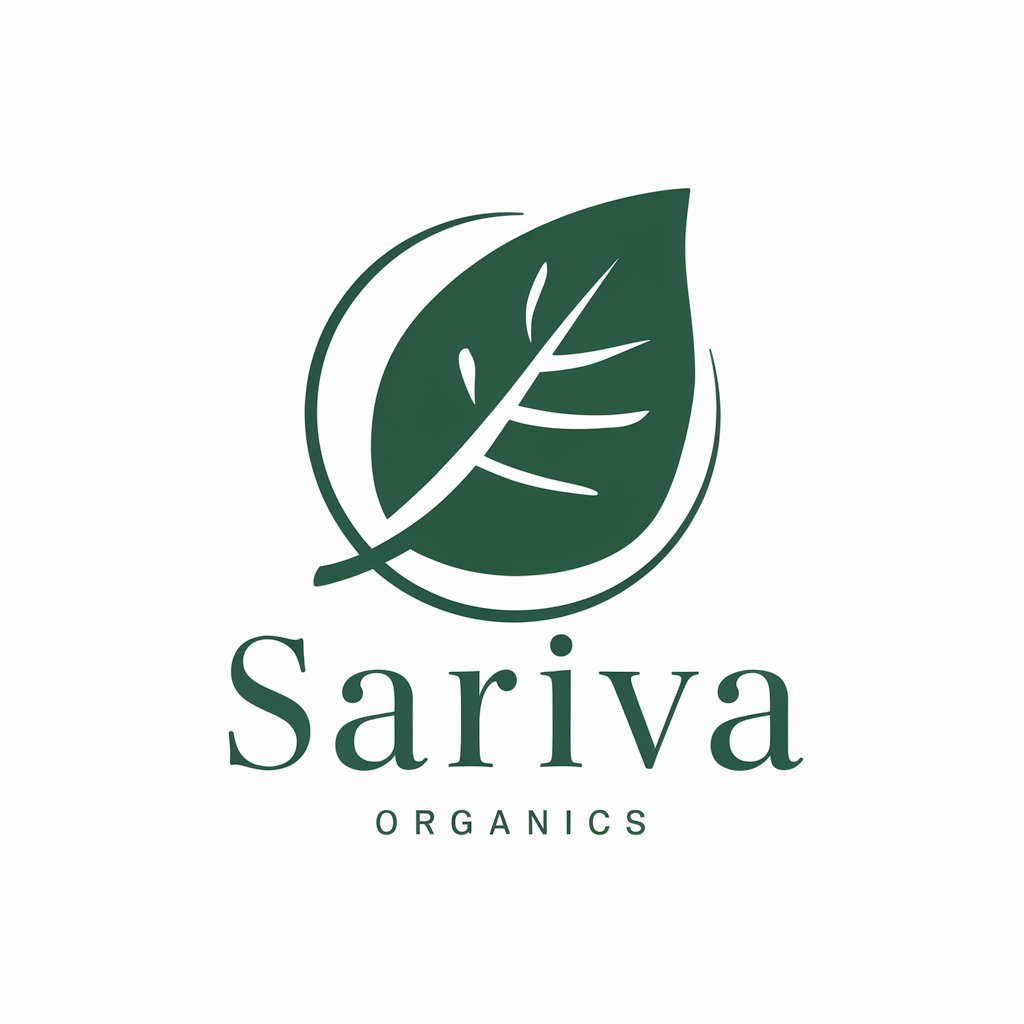Diabetes has become a common ailment in India, affecting millions of people across the country. Both Type 1 and Type 2 diabetes are on the rise, with Type 2 being more prevalent among adults due to lifestyle and dietary habits. Managing diabetes effectively is crucial to prevent complications such as heart disease, nerve damage, and kidney problems.
Diet plays a significant role in controlling diabetes. A well-balanced diet helps maintain stable blood sugar levels, which is essential for managing this condition. Conventional diets often contain processed foods and chemicals that can cause blood sugar spikes and worsen diabetes symptoms.
Organic foods offer a healthier alternative. Grown without synthetic pesticides and fertilizers, organic foods are more nutrient-dense and free from harmful chemicals.
These organic foods help stabilize blood sugar levels and controls diabetes due to their high fiber content, low glycemic index, and absence of artificial additives.
My husband has been battling diabetes for years, relying heavily on medication. Despite the medicines, his sugar levels would often fluctuate wildly. After introducing organic foods into his diet, we noticed a significant improvement. His sugar levels became more stable, and we even managed to reduce his medication dosage. While he still takes his medicines, the addition of organic foods has made a remarkable difference in his daily life. This personal experience has convinced me of the power of organic foods in managing diabetes effectively.
Understanding Diabetes

Diabetes is a chronic condition that affects how your body processes blood sugar (glucose). There are mainly two types of diabetes: Type 1 and Type 2.
Type 1 diabetes is an autoimmune condition where the body’s immune system attacks insulin-producing cells in the pancreas. This type usually manifests in childhood or adolescence, and people with Type 1 diabetes need to take insulin daily.
Type 2 diabetes, the more common type, occurs when the body becomes resistant to insulin or doesn’t produce enough insulin. This type is often linked to lifestyle factors and typically develops in adults, though it’s increasingly seen in younger people.
Common symptoms of diabetes include increased thirst, frequent urination, extreme fatigue, blurred vision, and slow-healing wounds. If not managed properly, diabetes can lead to severe complications such as heart disease, kidney failure, nerve damage, and vision problems.
Controlling blood sugar levels is crucial for diabetics to prevent these complications. High blood sugar levels over a prolonged period can damage various organs and systems in the body. Monitoring blood sugar regularly and maintaining it within a target range helps reduce the risk of complications and improves overall health.
Understanding diabetes and its effects is the first step towards effective management. It allows individuals to take proactive measures, including dietary adjustments, to keep their condition under control.
The Role of Diet in Diabetes Management

A balanced diet plays a pivotal role in managing diabetes. For diabetics, what they eat can significantly impact their blood sugar levels. A well-planned diet helps maintain stable blood sugar levels, which is essential for preventing complications.
The glycemic index (GI) is a tool that ranks foods based on how they affect blood sugar levels. Foods with a high GI cause rapid spikes in blood sugar, while those with a low GI are digested more slowly, leading to gradual increases in blood sugar. Diabetics are advised to focus on low-GI foods to help keep their blood sugar levels stable.
Processed and conventional foods often pose risks for diabetics. These foods are typically high in refined sugars, unhealthy fats, and additives that can cause blood sugar spikes and contribute to insulin resistance. Additionally, processed foods often lack essential nutrients and fiber, which are crucial for maintaining good health and stable blood sugar levels.
A diet rich in whole, organic foods is beneficial for diabetics as it control and manages diabetes. Since they are free from synthetic pesticides and fertilizers, this makes whole, organic foods a much healthier option. They are generally more nutrient-dense and contain higher levels of antioxidants and fiber, which are essential for managing diabetes.
Switching to an organic, whole foods, balanced diet can help diabetics better control their blood sugar levels and thus their overall health including diabetes. By understanding the impact of different foods and making mindful choices, diabetics can improve their quality of life and reduce the risk of complications.
What Makes Organic Foods Different?

Organic farming is a method of agriculture that emphasizes the use of natural processes and materials. The principles of organic farming include maintaining soil fertility through crop rotations and composting, using biological pest control instead of synthetic pesticides, and promoting biodiversity.
Organic farming avoids genetically modified organisms (GMOs) and synthetic chemicals, ensuring that the food produced is as natural as possible.
The differences between organic and conventional foods are significant. Conventional farming often relies on synthetic pesticides, fertilizers, and GMOs to increase crop yields and reduce costs.
These chemicals leave residues on food, which have adverse health effects over time. In contrast, organic foods are grown using natural methods that avoid these harmful substances, making them a safer choice for consumers.
Nutrient density is another key difference. Organic foods often contain higher levels of vitamins, minerals, and antioxidants compared to their conventionally grown counterparts.
This is because organic farming practices, such as crop rotation and the use of organic compost, help maintain soil health and nutrient content. When the soil is healthy, the plants it nurtures are also more nutrient-rich.
Reducing pesticide exposure is one of the most important benefits of consuming organic foods.
Pesticides used in conventional farming can accumulate in the body over time, potentially leading to health issues such as hormone disruption, neurological problems, and even certain cancers.
By choosing organic foods, you minimize your exposure to these harmful chemicals, promoting better overall health and well-being.
Organic Foods and Blood Sugar Control
Organic foods play a crucial role in the control of blood sugar levels, which is especially important for diabetes. There are several reasons why organic foods are beneficial in this regard.
Firstly, organic foods are typically high in fiber. Fiber is essential for controlling blood sugar levels because it slows down the absorption of sugar into the bloodstream.
This helps prevent the spikes and crashes that can occur with low-fiber foods. Foods like organic vegetables, fruits, and whole grains are excellent sources of fiber.
Secondly, many organic foods have a low glycemic index (GI). The GI measures how quickly a food raises blood sugar levels. Low-GI foods are digested and absorbed more slowly, leading to a gradual increase in blood sugar rather than a rapid spike. Organic legumes, nuts, and whole grains are examples of low-GI foods that can help maintain stable blood sugar levels.
Additionally, organic foods are free from harmful additives and preservatives. Conventional processed foods often contain artificial ingredients that can negatively affect blood sugar control.
These additives can cause inflammation and insulin resistance, making it harder to manage diabetes. Organic foods, being free from these substances, provide a cleaner, healthier option.
15 Organic Foods for Control of Diabetes
Adding these organic foods into a diabetic diet can offer numerous health benefits to help control diabetes.
Organic Fruits and Vegetables
Berries
Organic berries like blueberries, strawberries, and raspberries are rich in antioxidants, vitamins, and fiber. They have a low glycemic index (GI), making them ideal for blood sugar control. Add them to your morning oatmeal, blend them into smoothies, or enjoy them as a healthy snack.
Leafy Greens
Organic spinach, kale, and Swiss chard are low in calories and carbohydrates but high in fiber, vitamins, and minerals. These greens can help manage blood sugar levels and are versatile in cooking. Use them in salads, stir-fries, or smoothies for a nutritious boost.
Tomatoes
Organic tomatoes are packed with vitamins C and E, iron, and antioxidants like lycopene, which help reduce inflammation and improve heart health. Include them in your diet by making fresh salads, adding them to soups, or using them in homemade sauces.
Organic Whole Grains
Quinoa
Organic quinoa is a high-protein, gluten-free grain that contains all nine essential amino acids. It has a low GI and is rich in fiber, making it an excellent choice for diabetics. Cook quinoa as a base for salads, use it as a rice substitute, or add it to soups and stews.
Barley
Organic barley is another low-GI grain that helps control blood sugar levels. It is high in soluble fiber, which slows the digestion and absorption of carbohydrates. Enjoy barley in soups, stews, or as a side dish mixed with vegetables.
Oats
Organic oats are a great source of soluble fiber called beta-glucan, which helps regulate blood sugar and cholesterol levels. Start your day with a bowl of organic oatmeal topped with berries and nuts, or use oats in baking to make healthy snacks.
Organic Nuts and Seeds
Almonds
Organic almonds are rich in healthy fats, fiber, magnesium, and protein. They help control blood sugar by slowing the absorption of carbohydrates. Snack on a handful of almonds, add them to salads, or use almond flour in baking.
Chia Seeds
Organic chia seeds are packed with fiber, omega-3 fatty acids, and antioxidants. They help maintain blood sugar levels and improve digestion. Make a chia seed pudding for breakfast, sprinkle them over yogurt, or add them to smoothies.
Flaxseeds
Organic flaxseeds are high in fiber, omega-3 fatty acids, and lignans, which have antioxidant properties. Ground flaxseeds can be added to oatmeal, smoothies, or used as an egg substitute in baking.
Organic Dairy and Animal Products
A2 Milk
Organic A2 milk is easier to digest than regular milk and is free from the A1 beta-casein protein that can cause inflammation. It’s a good source of calcium, vitamin D, and protein. Use A2 milk in your morning cereal, smoothies, or as a drink.
Free-Range Eggs
Organic free-range eggs are higher in omega-3 fatty acids and vitamins compared to conventional eggs. They provide high-quality protein and essential nutrients. Enjoy eggs boiled, scrambled, or in an omelet with organic vegetables.
Lean Meats
Organic lean meats like chicken and turkey are good sources of protein without the added hormones and antibiotics found in conventional meats. Grill, bake, or stir-fry these meats with a variety of organic vegetables for a balanced meal.
Organic Herbs and Spices
Cinnamon
Organic cinnamon helps improve insulin sensitivity and lower blood sugar levels. Add a teaspoon of cinnamon to your oatmeal, smoothies, or use it in baking.
Turmeric
Organic turmeric contains curcumin, which has anti-inflammatory and blood sugar-lowering properties. Add turmeric to curries, soups, or make a turmeric latte with A2 milk.
Fenugreek
Organic fenugreek seeds are high in soluble fiber, which helps control blood sugar. Soak fenugreek seeds overnight and drink the water in the morning, or add fenugreek to your cooking.
Switching to an Organic Diet
Switching to an organic diet can seem overwhelming, but with a few practical tips, it can be manageable and rewarding. Here are some pointers to help you make the transition smoothly.
Tips for Making the Switch to Organic Foods
Start slowly by replacing a few key items in your pantry with organic versions. Focus on staples like fruits, vegetables, grains, and dairy products. Gradually increase the number of organic items as you become more comfortable and familiar with them.
Shopping Tips and Reading Labels
When shopping for organic foods, look for the certified organic label, which ensures the product meets organic farming standards. Read ingredient lists carefully to avoid processed foods with hidden additives, even if they are labeled organic.
Starting with the “Dirty Dozen” and “Clean Fifteen”
The “Dirty Dozen” list includes fruits and vegetables with the highest pesticide residues, such as strawberries, spinach, and apples. Prioritize buying these items organic. The “Clean Fifteen” list includes produce with the lowest pesticide residues, like avocados, sweet corn, and pineapples, which are safer to buy non-organic if needed.
How Our Household Transitioned to Organic Foods
Our household’s journey to organic foods began with my husband’s diabetes diagnosis. We started by incorporating organic fruits and vegetables into our meals. Gradually, we expanded to organic grains, nuts, and dairy. The change wasn’t immediate, but we noticed significant improvements in his blood sugar stability and overall health, which motivated us to continue.
Case Studies and Research
Numerous studies highlight the benefits of organic foods in managing diabetes. Research has shown that organic diets can reduce exposure to harmful pesticides, improve nutrient intake, and support better blood sugar control.
Studies Showing the Benefits of Organic Foods in Diabetes Management
Studies have indicated that organic foods are often richer in essential nutrients like vitamins, minerals, and antioxidants. These nutrients help reduce inflammation and improve insulin sensitivity, crucial for diabetes management. Research also shows that organic foods have a lower glycemic index, aiding in better blood sugar control.
Testimonials from People Who Have Benefited from an Organic Diet
Many individuals have shared their success stories of managing diabetes with an organic diet. For instance, Ramesh, a 55-year-old diabetic, reported that switching to organic foods helped control his blood sugar levels and thus help in managing his diabetes. Similarly, Meera, a diabetic patient, found that her energy levels improved significantly after adopting an organic diet.
Common Concerns
Cost of Organic Foods and Budget-Friendly Tips
Organic foods can be more expensive, but there are ways to manage costs. Buy seasonal produce, which is often cheaper. Purchase in bulk, grow your own organic vegetables if possible, and prioritize buying organic for the “Dirty Dozen” items.
Availability and Accessibility of Organic Foods
While availability of organic foods has increased, it can still be a challenge in some areas. Look for local farmers’ markets, organic food stores, or online platforms like Sariva Organics that deliver organic produce to your doorstep.
Misconceptions about Organic Foods
Some people doubt the benefits of organic foods, considering them a marketing gimmick. However, scientific evidence supports the nutritional and health benefits of organic foods. Educating oneself about the advantages and making informed choices can dispel these misconceptions.
Conclusion
The benefits of organic foods for diabetes management and control are compelling. They help stabilize blood sugar levels, reduce exposure to harmful chemicals, and improve overall health.
Adding organic foods into your daily diet doesn’t have to be overwhelming. Start with small changes, focus on key items, and gradually expand your organic choices.
Our family’s experience with organic foods has been transformative. My husband’s diabetes is more manageable, and our overall health has improved. I encourage you to explore organic options and experience the positive changes they can bring to your health and well-being.
Eat Healthy, Stay Healthy!
Start your journey towards better health by adding organic foods into your diet gradually. Begin with a few key items and expand as you become more comfortable.
Share the benefits of organic foods with your friends and family, spreading the word about healthier eating habits. Visit Sariva Organics for fresh, high-quality organic produce and products to support your dietary changes. Embrace the positive impact of organic foods on your health and well-being.
References and Sources
- Nutritional Benefits of Organic Foods: This study discusses the nutritional differences between organic and conventional foods, emphasizing the higher levels of antioxidants and essential nutrients found in organic produce.
- Impact of Pesticides on Human Health: This research highlights the potential health risks associated with pesticide exposure from conventional foods and the benefits of choosing organic options to reduce these risks.
- Glycemic Index of Organic vs. Conventional Foods: This study explores the differences in glycemic index between organic and conventional foods, showing how organic foods can help maintain stable blood sugar levels.
- For personalized advice and consultations, feel free to contact us at Sariva Organics for expert guidance on incorporating organic foods into your diet.
